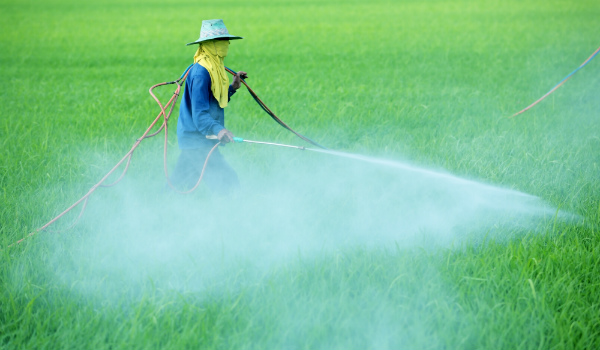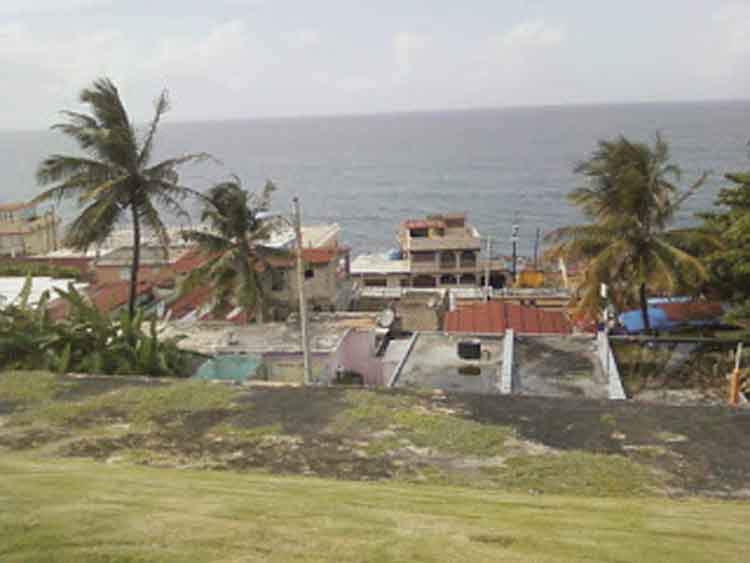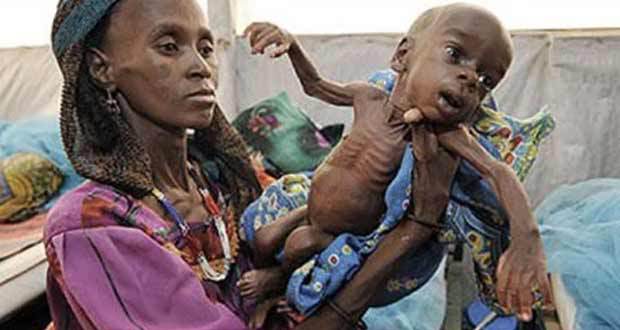Andre Vltchek
Now that the Syrian armed forces have liberated Palmyra, President al Assad has thanked Vladimir Putin and the Russian people for the substantial support they provided to his country. Side by side, Syria and Russia have been fighting against the ISIS and other terrorist groups operating in the region - mainly the implants from the staunch allies of the West: Saudi Arabia, Qatar and Turkey.
After recent victories in Syria, the myth of invincibility of the terrorism has collapsed, smashed to pieces. It has become clear that if fought honestly and with full determination, even the most fanatical ones can be defeated.
It has also become obvious that the West has very little interest in defeating these groups. First: they were invented in the Western capitals, at least conceptually. Second: they serve numerous purposes and in many different parts of the world; they brutalize rebellious countries in the Middle East, and they are spreading fear and frustration amongst the European citizens thus justifying increasing ‘defense’ and intelligence budgets, as well as grotesque surveillance measures.
It is so obvious that the West is unhappy about the marvelous success of both the Syrian and Russian forces in the Middle East. And it still does all it can to undermine it, and it is belittling and even smearing it using its propaganda apparatus.
*
Now that the ISIS has been pushed away, further and further from all key strategic locations inside Syria, the question comes to mind:if finally defeated, where is it going to go next?
Its fighters are, of course, in neighboring Iraq, but Baghdad has also been forging a closer and closer alliance with Russia, and the terrorist groups may soon not be safe there, either.
By all accounts, the easiest place for the ISIS to expand is Lebanon.
Because the ISIS is already there! Its dormant cells are spread across the entire country, from Bekaa Valley, and even to some of the posh (and not necessarily Muslim) neighborhoods of Beirut.
Historically, Syria and Lebanon are asingle entity. The movement of people between these two countries is substantial and constant. After the war in Syria began, hundreds of thousands of refugees, poor and rich, entered tiny Lebanon, some settling in the makeshift camps in Bekaa Valley, others renting lavish apartments on the Cornichein Beirut.
Officially, Lebanon (a country with only 4.5 million inhabitants) is “hosting” around 1.5 million refugees, mostly Syrians, but also those from Iraq and elsewhere. That is in addition to approximately 450,000 ‘permanent Palestinian refugees’ who are living in severallarge camps administered by UNRWA.
On some occasions, when the fighting got too vicious, the number of Syrian refugees in Lebanon spiked (unofficially) to over 2 million.
For many years, the border between Lebanon and Syria has been porous, and even checks at the border crossings wererelatively lax. It began to change, but only recently.
With the refugees (mostlyfamilies escaping from battles and from the extreme hardship caused by the conflict), came a substantial number of jihadi cadres - fighters from the ISIS, Al Nusrah and other pro-Saudi and pro-Turkish terrorist groups. They took full advantage of the situation, infiltrating the flow of legitimate émigrés.
Their goal has been clear and simple: to regroup in Lebanon, to create strong and effective cells, and then to strike when the time is ripe. The ‘dream’ of the ISIS is a mighty Caliphate in the north of Lebanon, preferably with full access to the Mediterranean Sea.
In recent history, Lebanon has becomean extremely weak state, divided along the sectarian lines. For almost two years it has beenunable to elect a President. To date, the government has been dysfunctional, almost paralyzed. The country is suffering from countless lethal ailments: from never-ending ‘garbage crises’ to constant electricity shortages, and problems with water supply. There is no public transportation, and public education is underfunded, inadequate and serves only the poorest part of the population. Corruption is endemic.
From time to time, Israel threatens to invade. It has attacked Lebanon on at least 5 separate occasions;the last time was as recent asin 2006.
In the northeast of the country, on the Syrian border, both Lebanese military and Hezbollah are engagedin fighting the ISIS.
But the Lebanese military is under-staffed, badly armed and terribly trained. In the end it is Hezbollah, the most prominent military, social and ideological force in Lebanon, which is holding the line. It is fighting a tremendous, epic battle, in which ithas already lost more men than it did when combating the most recent Israeli invasion in 2006.
So far, Hezbollah’s combatagainst the terrorist groups is successful. But in addition to providing defense, it is nowthe only political force in Lebanon that is willing to reach across the sectarian divides. It is also offeringmuch needed social support to hundreds of thousands of poor Lebanese citizens.
In Lebanon and in fact all over the Middle East, Hezbollah is deeply respected. But it is Shi’a;it has been closely linked with Iran and Syria, and it is known to be fiercely critical of the West and its murderous actions in the Middle East and the Gulf. It is fighting precisely those terrorist groups that arearmed and supported by Saudi Arabia, Qatar and Turkey.
Therefore, it is antagonized.
The Lebanese government persistently refuses to place Hezbollah on the ‘terrorist list’, something that has already been done by many Western countries and by most of the pro-Westernmembers of the Arab League.
To the dismay of Saudi Arabia, both Iraq and Lebanon refused to vote in favor of declaring Hezbollah a terrorist organization. Syria would also refuse, but predictablyit was not invited to vote.
Lebanon is increasingly critical of the West, of the international organizations and of the Arab League countries. It is outraged over the double standards related to the so-called ‘refugee crisis’. It is also unusually outspoken.
One of Lebanon’s major newspapers, the Daily Star, reported on March 26th, 2016:
“Foreign Minister GebranBassil Saturday accused the international community of approaching the Syrian refugee crisis with a double standard; hours after U.N. chief Ban Ki-moon departed Beirut following a two-day visit.
Bassil pointed to the inconsistency of countries that back Syria's armed insurrection to call on Lebanon to put human rights first, noting that many of those states were removing refugees by force - a move Beirut has not taken.
“They create war, and then call on others to host refugees in line with human rights treaties,” he said in a televised news conference from his residence in Batroun.”
The Foreign Minister GebranBassil and his party are in fact in a coalition with Hezbollah. Hewas extremely critical of thetop ranking visitors who are lately overwhelmingLebanon: U.N. chief Ban Ki-moon, World Bank Group President Jim Yong Kim and EU foreign policy chief Federica Mogherini.
Mr. Bassil even refused to meet Ban Ki-moon in person.
One of my sources that attended the closed-door meeting of Ban Ki-moon, Jim Yong Kim and the heads of the U.N. agencies in Beirut, commented: “almost nothing new, concrete or inspiring was discussed there.”
In Beirut, it is often mentioned that while Turkey and Jordanare able to negotiate billions of dollars for hosting the refugees on their soil, Lebanon is only given empty promises from the EU and the rest of international community. It is also being threatened with legal consequences, in case it were to decide to remove the refugees by force (the West’s allies like Thailand regularly remove refugees by force, often even killing them, but there are never any substantial threats delivered. Several European countries are also forcing refugees to leave).
How a country of 4.5 million will manage to cope with 1.5 million immigrants is uncertain. What is clear is that Lebanon’s infrastructure is collapsing or, as some say, is already gone.
*
It appears that there is a plan, a reason for choking Lebanon.
Several Beirut-based experts are claiming that the country will soon become indefensible.
The Saudis cancelled more than U$4 billion in the aid earlier promised to the Lebanese military forces.
Robert Fisk wrote for the Independent on March 2nd, 2016:
“Now Saudi Arabia, blundering into the civil war in Yemen and threatening to send its overpaid but poorly trained soldiers into Syria, has turned with a vengeance on Lebanon for its unfaithfulness and lack of gratitude after decades of Saudi largesse.
After repeatedly promising to spend £3.2bn on new French weapons for the well-trained but hopelessly under-armed Lebanese army, Saudi Arabia has suddenly declined to fund the project – which was eagerly supported by the US and, for greedier reasons, by Paris. Along with other Gulf states, Riyadh has told its citizens not to visit Lebanon or – if they are already there – to leave. Saudi Airlines is supposedly going to halt all flights to Beirut. Lebanon, according to the Saudis, is a centre of “terror”.”
The fact that last year Lebanon dared to arrest a Saudi Prince at Rafik Hariri International Airport, as he was trying to smuggle two tonnes of Captagon amphetamine pills bound for Saudi Arabia on a private jet, did not help. The Prince was also smuggling cocaine, but that was, most likely, for his personal consumption. Captagon amphetamine is also called the ‘combat drug’, and was, most likely, destined for pro-Saudi fighters in Yemen.
So what will happen if the Lebanese military gets no new weapons? Maybe Iran could help, but if not?
Then Hezbollah would be the only force facingthe ISIS that will soon be pouring out of the liberated cities in Syria in all directions, particularly towards the coast of Lebanon.
But Hezbollah is ostracized, choked and demonized by the West and the Gulf.
One tiny new Israeli invasion and almost all Hezbollah forces would be tiedup in the south, the ISIS would attack from the north, the dormant cells would be activated in Beirut, Tripoli and other cities, and Lebanon would collapse within few days.Is this a plan? After all, Israel and Saudi Arabia are two close allies, when it comes to their ‘Shi’a enemies’.
Then this tiny, proud and creative country would basically cease to exist.
The Gulf States (their rulers, not the people) would rejoice: another bastion of tolerance gone. And one more Shi’a stronghold – Hezbollah areas inside Lebanon – would be plundered and destroyed.
The West mightbe officially expressing its ‘concern’, but such a scenario would fit into its master plan: one more rebellious country would be finished, and Syria would for yearsbe threatened fromthe western direction. After all, Damascus is only 30 minutes drive from the Lebanese border.
The “Paris of the Middle East” as Beirut used to be called, would thenbe ‘decorated’ with those frightening black flags of the ISIS. Lebanon as a whole would experience total collapse, year zero, the end.
This is not some phantasmagoric scenario. All this could happen within one year, even within a few months.
Right now, Lebanon has only two places where to ask for help, for protection: Teheran and Moscow. It should approach both of them, without any delay!


